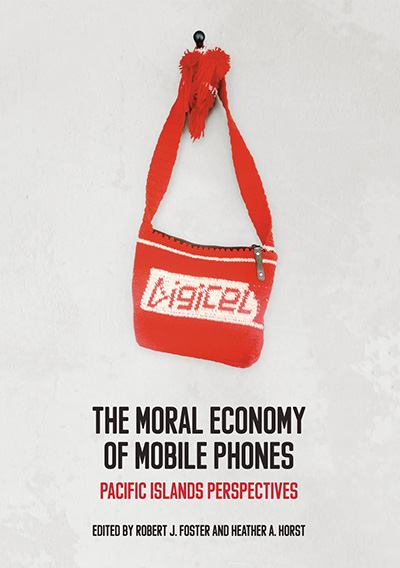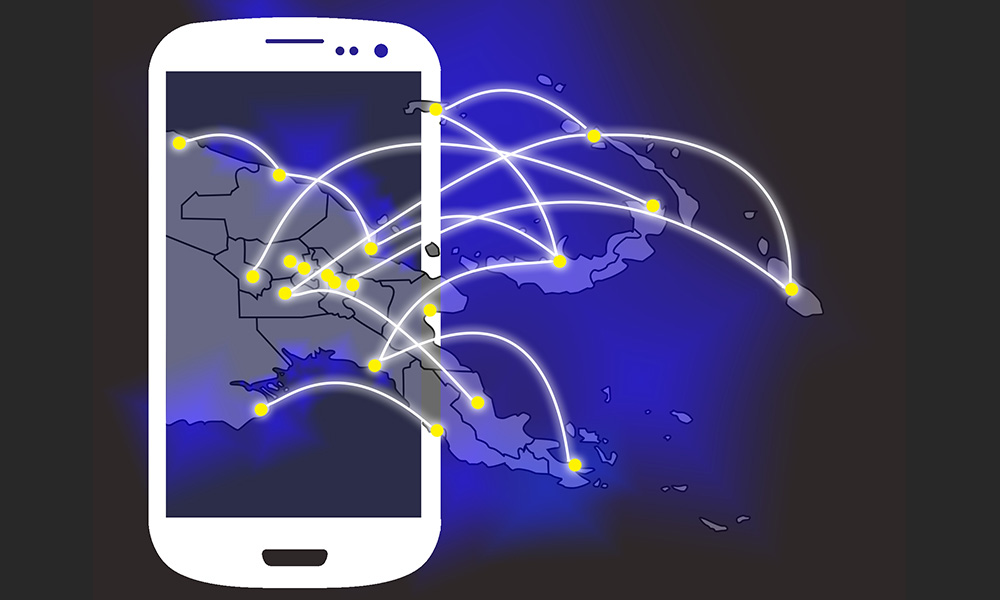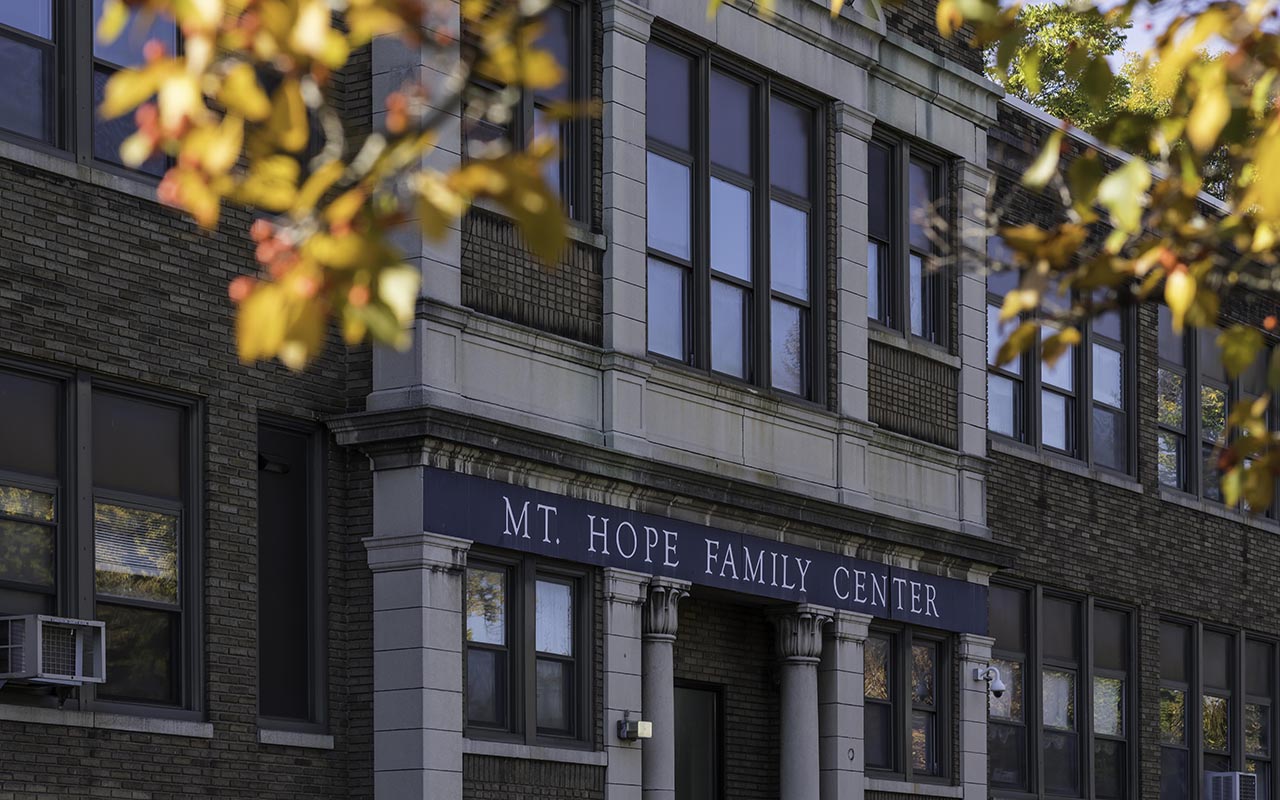Robert Foster, a professor of anthropology at Rochester, has had a longstanding interest in Papua New Guinea that started in 1984 with his doctoral dissertation research. He later did work on cultural attitudes in Papua New Guinea toward Coca-Cola. When he visited the South Pacific island nation in 2010, he found it transformed by another product: cell phones.
“The coming of the cell phone in Papua New Guinea just couldn’t be ignored. There was a moment when they were nowhere, then a moment when they were everywhere,” he says.
In 2014, he launched a three-year research project funded by the Australian Research Council, a comparative study of what he called “moral economy” of cell phones in Papua New Guinea and Fiji—that is, the shifting relations among consumers, companies and state actors, all of whom have their own ideas about what is good, fair and just.
 As part of the project, he’s coedited a book, The Moral Economy of Mobile Phones: Pacific Island Perspectives (available for free download at Australian National University Press), with Heather Horst, a professor of media and communications at The University of Sydney. It describes what happened in Papua New Guinea and other Pacific island nations when their governments opened up the telecommunications sector to market competition.
As part of the project, he’s coedited a book, The Moral Economy of Mobile Phones: Pacific Island Perspectives (available for free download at Australian National University Press), with Heather Horst, a professor of media and communications at The University of Sydney. It describes what happened in Papua New Guinea and other Pacific island nations when their governments opened up the telecommunications sector to market competition.
In short, one company, Digicel, built an infrastructure that brought cell phones to remote areas, achieving in Papua New Guinea, a remarkable 90 percent coverage rate. “Digicel has offered a service that the government failed to provide, namely making communication possible throughout Papua New Guinea,” says Foster. “And in that way, the company has helped bring together family and friends living across the country.”
Cell phones were not simply used to talk with family and friends. Foster learned that people in Papua New Guinea and elsewhere in the South Pacific were randomly dialing numbers in an effort to make new connections or “phone friends.” Cell phones offered villagers, including women, a way to create social relations outside the customary bounds of kinship and locality.
“It is perhaps the combination of intimacy and strangeness made possible by mobile phones that marks something new under the sun,” says Foster.
He points out that while Digicel has done a great deal for the people of Papua New Guinea, it is still a for-profit company. “Digicel is not there for humanitarian purposes. It exists to make money and does humanitarian things on the side,” says Foster. Consumers have accordingly developed new forms of self discipline in response to the company’s offerings. “It would seem that a recognizably Protestant ethic has emerged as a form of self-defense on the part of mobile phone users against the almost incessant corporate incitement to consume.”
For more about the research, see “The Future is Calling,” Rochester Review, July-August 2016.





